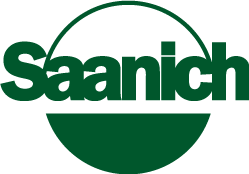What are Pesticides?
Pesticide refers to any substance that is designed to prevent, kill or repel unwanted organisms. It is a general term which also covers more specific terms such as:
- Insecticides — for insects.
- Herbicides — for plants.
- Fungicides — for fungal diseases.
What are some pesticides I can use?
- Acetic acid — vinegar-based products like Path Clear.
- Bti & Btk — mosquito control.
- Corn gluten meal — use this natural herbicide to prevent turf weeds.
- Methoprene — an insect growth regulator.
- Botanically derived pesticides — pyrethrins.
- Insect bait stations and pheromones.
- Insecticidal or herbicidal soaps.
- Iron-based weed killers.
- Mineral oils.
- Silicon dioxide — diatomaceous earth.
- Spinosad — mosquito control and others.
- Sulphurs, ferrous sulphate — moss killer.
You can see the full list of low-risk pesticides allowed for use in Schedule A of the pesticide bylaw.
Which pesticides are restricted?
You are restricted in the general use of traditional products containing synthetic chemicals. This includes many common products, including:
- Glyphosate — Roundup, Sidekick, and many more.
- 2,4-D — Weed n’ Feed, Killex etc.
- Malathion.
- Carbaryl — Sevin.
- Diazinon.
- Triclopyr (as found in Garlon).
- Sethoxydim (as found in POAST Ultra).
- Rotenone.
Remember, the above example product names are only a sample of popular brands that are not on the permitted list. Please check the ingredients of your product for their chemical content.
How can I tell if a product I bought is okay under the bylaw?
You need to be sure that any active ingredient (or “GUARANTEE”) is on the list of permitted low-risk pesticides. If your active ingredient is NOT on the list, then you cannot use the product without a permit.


